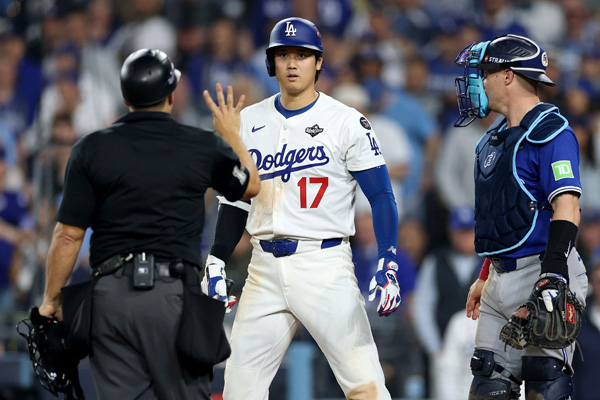In one of the most dramatic and exhausting games in recent World Series memory, the Toronto Blue Jays fell 5–6 to the Los Angeles Dodgers after 18 innings of relentless baseball at Dodger Stadium. But beyond the scoreline, one storyline dominated the night — Toronto manager John Schneider’s decision to intentionally pitch around Shohei Ohtani four times.
Following the marathon loss on October 28 (Korea time), Schneider met with reporters to reflect on what he described as “a game full of stories.” Despite the heartbreak of defeat, the Blue Jays skipper took pride in his team’s fight and discipline throughout the long night.
“I like the way we played and the way we fought,” Schneider said. “Both teams had the right intentions. There were so many things to consider — opportunities for us, opportunities for them. There’s a lot to digest.”
Still, the turning point was clear to everyone in the stadium Ohtani’s walk-off home run that sealed the Dodgers’ victory.
“Of course, the walk-off home run changed everything,” Schneider admitted. “But I have to acknowledge the effort of our players, especially Eric Lauer’s performance on the mound. It was beyond belief. I also understand that Will Cline on the other side pitched incredibly well. There were so many layers to this game — but right now, I can’t help feeling disappointed.”
The Ohtani Dilemma
Ohtani was the undisputed star of the game, continuing his legendary postseason run with another superhuman display. In his first four at-bats, he recorded two doubles and two home runs, forcing Schneider’s hand. For the rest of the night, Ohtani was walked five straight times — four of those intentionally. Even his final at-bat in the bottom of the 17th inning was, for all intents and purposes, another deliberate walk.
Schneider acknowledged that facing Ohtani required an entirely different level of tactical awareness.
“His performance was unbelievable. He’s the best player on the planet,” Schneider said frankly. “We had to respond in real time. Every situation against him is different, and you have to execute the plan perfectly.”
The Blue Jays manager emphasized that avoiding Ohtani was never the easy option. With Mookie Betts and Freddie Freeman batting behind him, the Dodgers’ lineup offered no safe ground.
“Skipping him and facing Mookie or Freddie isn’t exactly easy,” Schneider noted. “But when you face Ohtani, you need to commit to your plan. In the first two games, I think we handled him pretty well, except for the home run he hit in Game 1. But today, he just made a perfect swing.”
The Moment That Changed Everything
Toronto briefly considered pitching to Ohtani again in the seventh inning, holding a mound meeting to discuss their approach. Ultimately, they went head-to-head and Ohtani promptly launched a game-tying home run. From that point on, Schneider and his coaching staff made a firm decision: no more direct challenges.
> “We tried to throw around the strike zone,” Schneider explained. “I believed in Dominguez to execute, but sometimes pitchers miss their spots. It’s tough. After that, we just had to get the bat out of his hands.”
When asked whether fans could expect more intentional pitches to Ohtani in future matchups, Schneider smiled and nodded.
“I don’t want to reveal our secrets,” he said, “but yes it’s something you might see again.”
Injury Concerns for Springer
Amid the intensity of the marathon game, Toronto also suffered an injury scare. Veteran outfielder George Springer exited the game in the seventh inning with discomfort on his right side.
“He said he felt some tightness,” Schneider confirmed. “He’s already had an MRI. Thankfully, it’s not worse, but we’ll evaluate his condition tomorrow. It’s frustrating because he’s such a big part of our lineup.”
Looking Ahead
For Schneider and the Blue Jays, the Game 3 loss was a gut punch — a night filled with both tactical boldness and emotional exhaustion. Yet, Schneider’s postgame comments reflected a sense of perspective. His respect for Ohtani’s dominance was clear, as was his belief in his team’s resilience.
“We played with heart,” Schneider concluded. “You can’t ask for much more than that in a game like this.”

